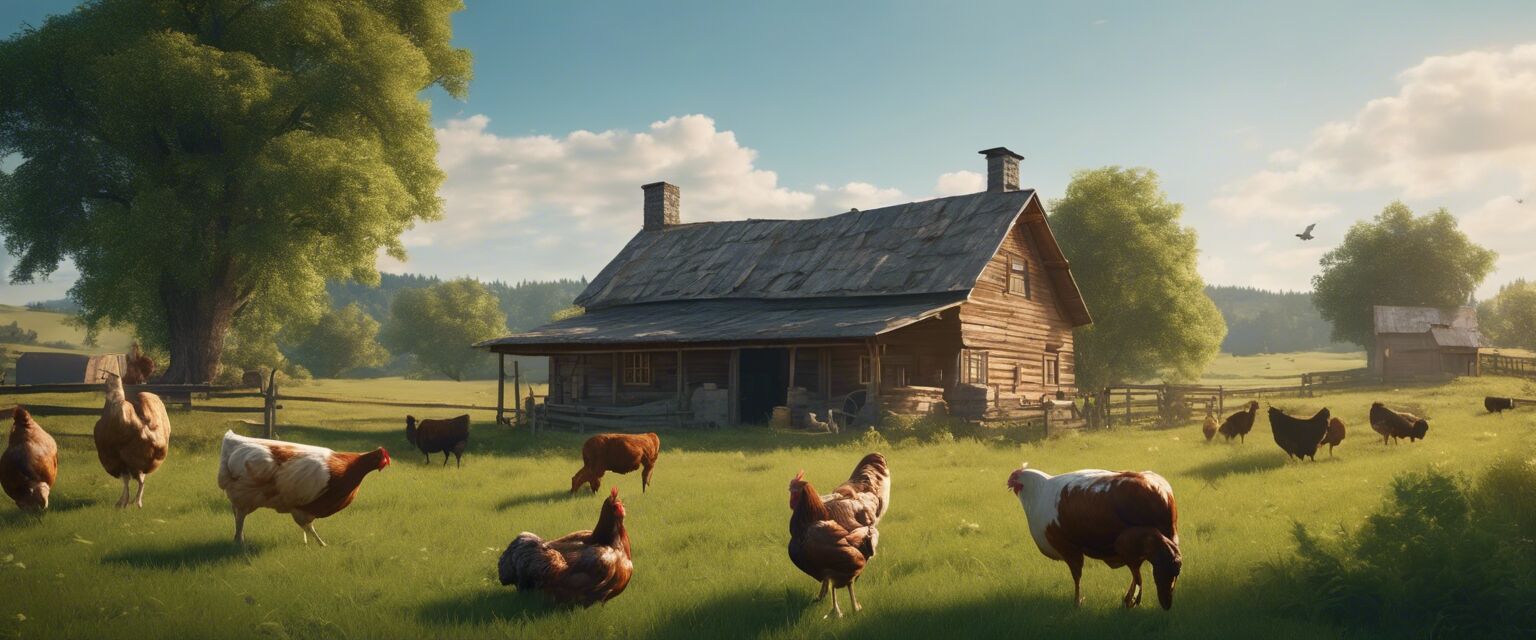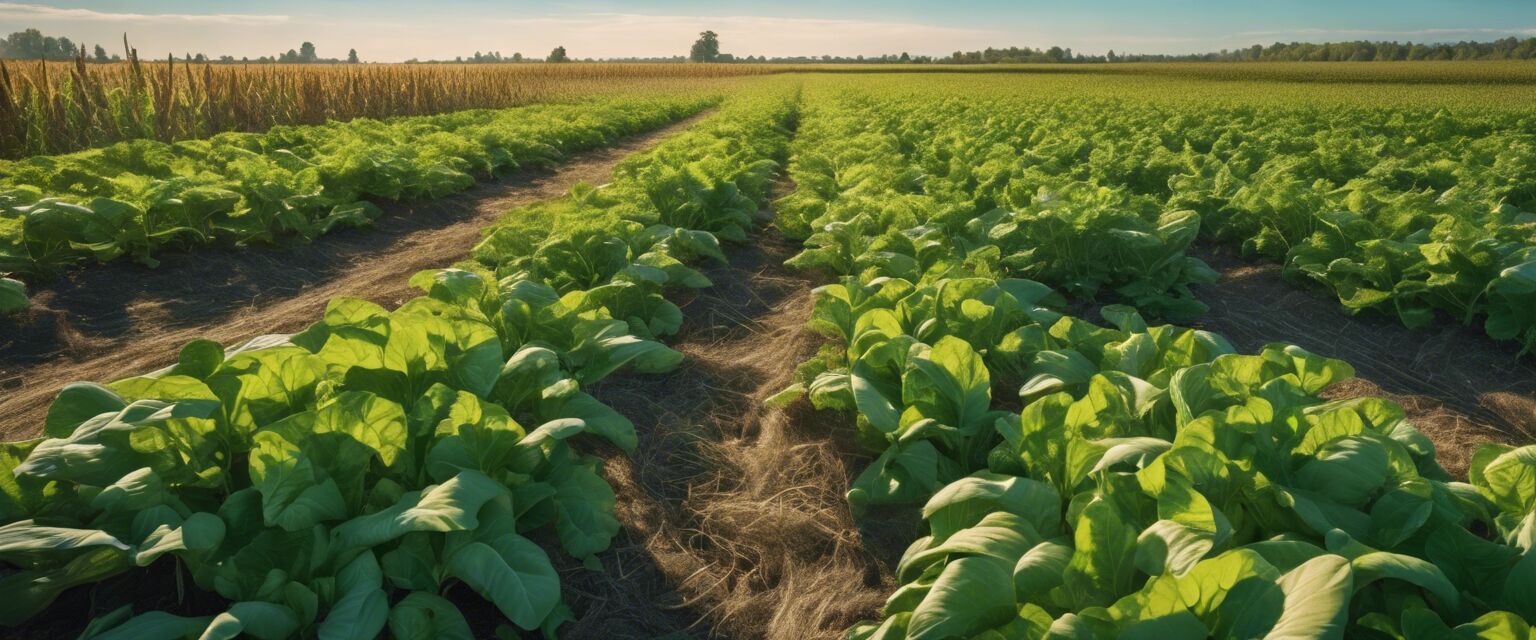
Animal Husbandry
Key Takeaways
- Understanding the basics of livestock and poultry care is essential for a self-sufficient homestead.
- Choosing the right breeds for your environment can enhance productivity.
- Proper feeding, shelter, and healthcare practices are critical for animal welfare.
- Regular maintenance and observation can prevent common health issues.
Animal husbandry is a significant component of maintaining a self-sufficient homestead. It involves the breeding and care of livestock and poultry, which not only provide food but can also contribute to the sustainability of your farming practices. In this comprehensive guide, we will explore the essential aspects of animal husbandry, including the types of animals to consider, their care requirements, and the benefits of integrating them into your homestead.
Types of livestock and poultry for your homestead
| Animal Type | Purpose | Common Breeds |
|---|---|---|
| Cattle | Meat, milk | Aberdeen Angus, Holstein |
| Sheep | Meat, wool | Merino, Suffolk |
| Goats | Meat, milk, fiber | Nubian, Boer |
| Poultry | Eggs, meat | Rhode Island Red, Cornish |
| Rabbits | Meat, fur | New Zealand, Rex |
Choosing the right breeds
When starting your animal husbandry journey, selecting the right breeds suited to your climate and land resources is vital. Here are some considerations:
- Climate adaptability: Choose breeds that can thrive in your local environment.
- Space requirements: Consider how much space each animal type needs.
- Productivity: Some breeds may offer higher yields in terms of milk, meat, or eggs.
Basic care requirements for livestock and poultry
Understanding the basic care requirements of your animals is crucial for their health and productivity. Below are the primary aspects you need to consider:
Feeding
Providing a balanced diet is essential for the growth and productivity of your animals. Here are some common feed types:
| Animal | Feed Type |
|---|---|
| Cattle | Grass, hay, grains |
| Sheep | Forage, grains, mineral supplements |
| Goats | Browse, hay, grains |
| Poultry | Commercial feed, scraps, grains |
Shelter
Providing adequate shelter protects your animals from harsh weather and predators. Consider the following:
- Size: Ensure the shelter is spacious enough for all animals.
- Ventilation: Proper airflow prevents respiratory issues.
- Insulation: Keep your animals warm during colder months.
Healthcare
Regular veterinary care is essential. Key healthcare practices include:
- Routine vaccinations
- Parasite control
- Regular health check-ups
Benefits of animal husbandry in homesteading
Integrating animal husbandry into your homestead offers numerous advantages:
- Food security: Raising your own livestock and poultry ensures a consistent food supply.
- Soil fertility: Animal waste can enhance soil health and productivity.
- Self-sufficiency: Reduces reliance on commercial food systems.
Common challenges in animal husbandry
While rewarding, animal husbandry can present challenges. Here are some common issues:
- Health issues: Keeping an eye out for signs of illness can prevent outbreaks.
- Feeding costs: Fluctuating feed prices can impact your budget.
- Time commitment: Animals require daily attention and care.
Getting started with animal husbandry
Starting animal husbandry requires careful planning. Hereâs a step-by-step guide:
- Research suitable breeds for your homestead.
- Prepare adequate shelter and fencing.
- Source quality feed and supplies.
- Establish a healthcare plan with a veterinarian.
- Start with a small number of animals to gain experience.
Recommended resources for further learning
Educating yourself on animal husbandry will help you succeed. Consider the following resources:
- Canning Supplies - Learn how to preserve your harvest.
- DIY Shelter Materials - Build safe housing for your animals.
- Emergency Kits - Prepare for unexpected situations.
- Gardening Tools - Complement your animal husbandry with gardening.
- Water Filtration Solutions - Ensure clean water for your animals.
Tips for beginners
- Start small to learn the ropes before expanding your operations.
- Join local farming communities for support and advice.
- Keep detailed records of your animalsâ health and productivity.
Pros
- Provides a sustainable food source.
- Enhances soil health through natural fertilization.
- Offers companionship and enjoyment from animal care.
Cons
- Requires a significant time commitment.
- Can incur unexpected veterinary costs.
- Potential for animal-related issues, such as disease outbreaks.
Conclusion
Animal husbandry is an enriching aspect of homesteading that provides food security, enhances self-sufficiency, and contributes to the sustainability of your farm. By understanding the needs of your livestock and poultry, you can create a thriving environment that benefits both you and your animals. Start your journey today and enjoy the many rewards it brings!








